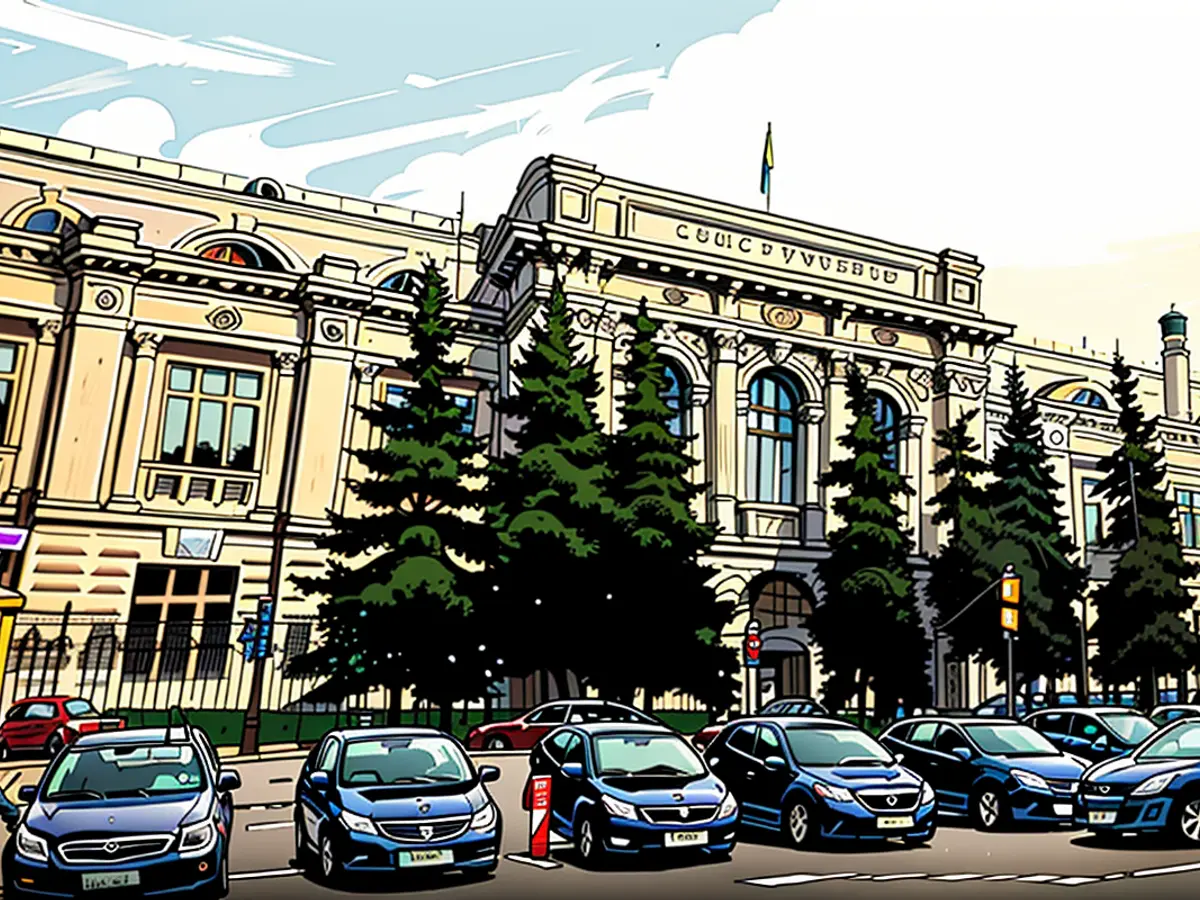Brisk Project - The EU releases funds from Russian assets for Ukraine
The EU is releasing for the first time interest payments from frozen Russian state assets for Ukraine's defense and reconstruction. EU Commission President Ursula von der Leyen announced a transfer of 1.5 billion Euro.
"There is no better symbol or better use for the Kremlin's money than making Ukraine and all of Europe a safer place to live," she wrote on social media X.
The money in question are interest payments from the Russian Central Bank's frozen assets in the EU. The use of these funds for Ukraine was already decided by the EU in the spring. The money is now being channeled to countries like Germany or Czechia, which then provide Ukraine with equipment for air defense or artillery shells.
According to Commission statements, around 210 billion Euro of the Russian Central Bank's assets are frozen in the EU. The Brussels-based financial institution Euroclear recently reported having earned roughly 4.4 billion Euro in interest in 2023.
Commission President von der Leyen and EU Foreign Policy Chief Josep Borrell made the proposal for indirect use of Russian funds for Ukraine to EU member states in March. They plan to direct 90 percent of the usable interest earnings from the custody of Russian Central Bank funds in the EU towards the EU funds for military equipment financing and training. The remaining 10 percent is intended for direct financial aid for Ukraine.
Kreml speaks of "expropriation"
The direct use of Russian Central Bank assets through an expropriation decree has not been planned so far. Legal concerns and likely retaliatory measures are cited as reasons. Moscow had already warned the EU the previous year not to confiscate the property of the Russian state or its citizens. It is conceivable that active companies from EU countries could be forcibly expropriated in Russia. Additionally, direct use of Russian financial assets could lead to other states and investors losing trust in the European financial hub and withdrawing assets from the EU.
The Kreml criticized EU plans to use interest from frozen Russian assets for Ukraine's benefit as "expropriation" in May. Moscow spokesman Dmitri Peskov said then that Brussels had decided on a "tempered version" in its actions against Russia, focusing only on the interest. "But even this tempered version is nothing more than expropriation," he added.
- Ursula von der Leyen, the EU Commission President, stated that the interest payments from frozen Russian state assets will be used for Ukraine's defense and reconstruction, amounting to 1.5 billion Euro.
- The money is being funneled to countries like Germany and Czechia, which will then provide Ukraine with necessary equipment such as air defense systems and artillery shells.
- Moscow has criticized the EU's plan to use interest from frozen Russian assets for Ukraine's benefit, calling it "expropriation," despite the EU focusing only on the interest payments.
- The Kremlin had previously warned the EU against confiscating Russian state or citizen properties, hinting at potential retaliatory measures, including the forced expropriation of EU companies in Russia.
- Germany and other EU member states were proposed to direct 90% of the usable interest earnings from the custody of Russian Central Bank funds in the EU towards EU funds for military equipment financing and training.
- The remaining 10% of the interest earnings are intended for direct financial aid for Ukraine, a move that has been met with resistance from Russia, which views it as an illegal seizure of its assets.








